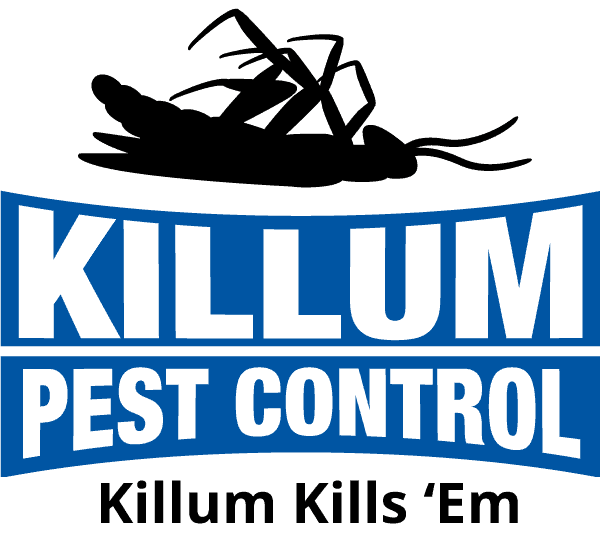In the highly regulated healthcare industry, maintaining a sterile and pest-free environment is imperative to patient safety, facility reputation, and compliance with stringent guidelines. Pest infestations in healthcare facilities can lead to cross-contamination, the spread of harmful pathogens, and the compromise of critical medical equipment.
So, it’s essential for Texas healthcare facilities to understand the unique pest control challenges they may encounter and implement effective, customized solutions to prevent pests from jeopardizing patient care and treatment outcomes.
As a leader in both residential and commercial pest control services, Killum Pest Control, Inc. is dedicated to assisting healthcare facilities in their mission to maintain a pest-free environment. Through this guide, we offer valuable insights and practical advice to help healthcare professionals and facility managers address the unique pest-related challenges that come with operating medical establishments in Texas.
Pest Control for Healthcare Facilities in Texas: A Guide for Facility Managers
1. Identifying Pest Risks: Common Threats to Texas Healthcare Facilities
To manage pest control issues effectively, healthcare facilities must be aware of the common pests found in Texas and the risks they pose:
- Rodents: Rats and mice can spread diseases, contaminate medical equipment, and compromise facility cleanliness. Signs of rodent infestations include droppings, gnaw marks, and nests.
- Ants: Various ant species may invade healthcare facilities, causing disruptions and potential risks to sanitation. Ant trails can serve as early indicators that prompt immediate action.
- Cockroaches: Known carriers of harmful bacteria, cockroaches pose considerable risks to healthcare environments. Monitor for droppings, shed skins, and foul smells, which signal their presence.
2. Defining Healthcare-Specific Challenges: Unique Pest Control Requirements
Healthcare facilities face unique pest control challenges that demand a specialized approach:
- Strict Sanitation Requirements: Infection control and sanitation protocols leave no room for pest activity. Facilities must uphold rigorous cleaning procedures to minimize potential contamination.
- Patient Well-Being: Patients with compromised immune systems can be particularly susceptible to health risks associated with pests. Ensuring a pest-free environment is crucial to avoid jeopardizing patient health.
- Regulatory Compliance: Healthcare facilities are required to meet strict guidelines and regulations in pest management. Non-compliance can result in fines, penalties, or closures.
3. Implementing Pest Prevention Strategies: Key Components for Healthcare Settings
Preventing pest infestations in healthcare facilities involves a multifaceted approach, encompassing several critical components:
- Sanitation and Waste Management: Regular cleaning is vital for discouraging pest infestations. Focus on high-risk areas, such as kitchens, patient rooms, and waste disposal areas. Store trash in sealed containers and promptly remove it from the premises.
- Facility Maintenance: Regularly inspect your facility for potential entry points, including cracks, gaps, and damaged window screens. Carry out prompt repairs to minimize the risk of pest entry.
- Staff Education: Educate employees on pest identification, risks, and preventive measures. Encourage prompt reporting of pest sightings and ensure that such concerns are addressed in a timely manner.
4. Partnering with a Medical Pest Control Expert: Customized Solutions and Ongoing Support
Working with a medical pest control expert like Killum Pest Control, Inc. ensures that your healthcare facility receives customized services tailored to its specific needs:
- Customized Pest Management Programs: A professional pest control provider will assess your facility’s unique requirements and develop a comprehensive pest management program that encompasses treatment options, prevention strategies, and ongoing monitoring.
- Expertise and Experience: Specialized medical pest control experts have knowledge of industry-specific regulations and guidelines, as well as experience in addressing the unique pest concerns of healthcare facilities.
- Continuous Support: Partnering with a trusted pest control provider ensures consistent, proactive support, allowing healthcare facilities to maintain pest-free environments and remain compliant with applicable regulations.
Effective Medical Pest Control for Protecting Healthcare Facilities
Pest control in healthcare facilities is a critical aspect of maintaining patient safety, facility reputation, and compliance with stringent industry guidelines. By recognizing the common pests that threaten healthcare facilities, healthcare professionals and facility managers can effectively safeguard their establishments against infestations.
As the leading provider of residential and commercial pest control services in Texas, Killum Pest Control, Inc. is dedicated to helping healthcare facilities maintain the sterile, pest-free environments necessary for delivering exceptional patient care. By collaborating with medical pest control experts like us, you can be confident that your healthcare facility will receive customized solutions to meet its specific pest management needs.





